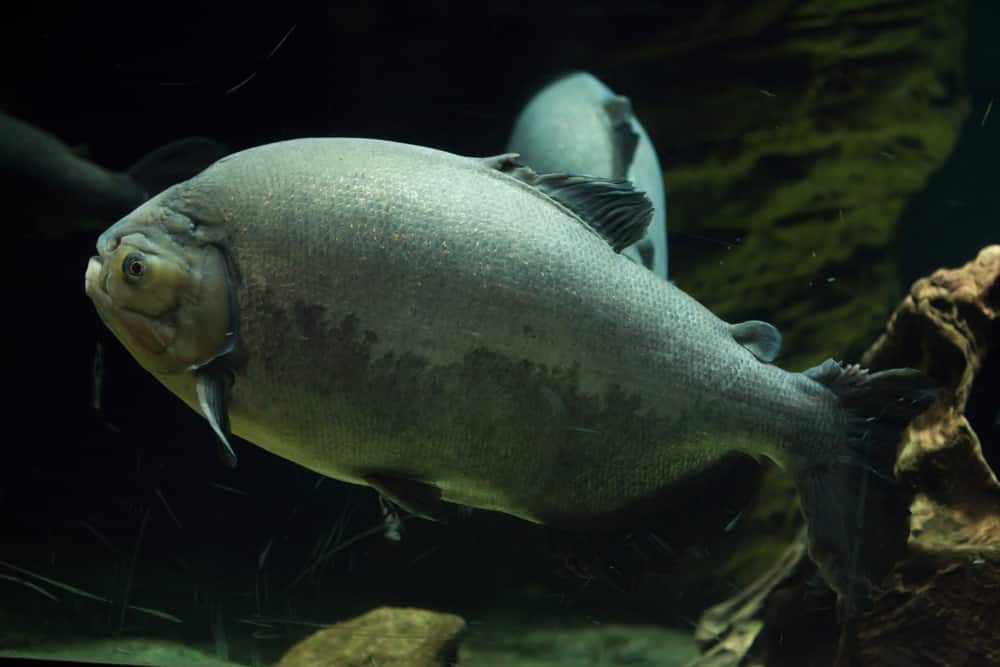The QPS blog focuses on presenting our insights into news on topics that are highly relevant to the pharmaceutical, biotech and CRO industries such as drawn-on-skin electronics, Parkinson’s Disease and advances in smoking cessation. This September, we’re taking a break to talk about some weird, whimsical scientific news in two parts. Part I included REM sleep in Australian dragons, a library of smells and the scientific location of the Christmas spirit. Read on for Part II’s roundup of offbeat scientific discoveries.
From the Amazon to Michigan
Recently, two Piaractus brachypomus — a close relative of the razor-toothed South American piranha — have turned up in an unlikely place: two separate lakes in Michigan. More commonly known as the red-bellied pacu, these fish have strangely human-like teeth and a vegetarian diet. The Michigan Department of Natural Resources theorizes that pet pacus, which can grow very quickly, were dumped in the local lakes by their overwhelmed owners.
Renewable Energy Is for the Worms
The marine flatworm Symsagittifera roscoffensis, commonly called the mint-sauce worm, can do something that few other animals can: photosynthesis. This worm has a symbiotic relationship with a species of algae that lives inside its body and provides nutrients. If enough mint-sauce worms get together in the right conditions, they group together in a spiraling vortex pattern. The circular milling attracts even more worms, forming a biofilm that helps the worms regulate the amount of sun to which they expose their internal algae — essentially forming a solar panel to produce more nutrients.
Oceans from Asteroids
Scientists have long hypothesized that the earth came to be covered in water as a result of ancient impacts by ice-bearing asteroids. But this was just a hypothesis — until a recent discovery of intact pieces of opal found on a meteorite. Unearthed in Antarctica, these opal pieces contained isotopes identical with the rest of the meteorite’s material. This proved that the ice did not form during its time on earth, but that the opals (comprising 30 percent water) were of extraterrestrial origin.
The Bacterial Bogeyman
Scientists and health practitioners have long been worried about the increase in antibiotic-resistant infections. The search for undiscovered and more effective antibiotics is ongoing, and scientists may have found the next candidate — in the human nose. Staphylococcus lugdunensis colonizes in the human body and is typically considered harmful, but researchers have found that common bacterial infections cannot coexist with S. lugdunesis. The antibiotic made from this bacteria, called Lugdunin, has shown promise in early trials against multi-resistant pathogens.
Call Him Squishy and He Shall Be Yours
Scientists exploring the Pacific Ocean aboard the undersea vessel the Nautilus recently made an unusual sighting. After consulting several marine institutions, they confirmed that the bright purple, googly-eyed creature — which looks not unlike a stuffed animal — was indeed the Rossia pacifica, a type of bobtail squid. This animal typically stays close to the ocean floor at depths of 4,000 feet (1,300 meters) below sea level, where it is seldom seen or photographed
QPS is a GLP- and GCP-compliant contract research organization (CRO) delivering the highest grade of discovery, preclinical and clinical drug research development services. Since 1995, it has grown from a tiny bioanalysis shop to a full-service CRO with 1,100+ employees in the U.S., Europe and Asia. Today, QPS offers expanded pharmaceutical contract R&D services with special expertise in neuropharmacology, DMPK, toxicology, bioanalysis, translational medicine and clinical development. An award-winning leader focused on bioanalytics and clinical trials, QPS is known for proven quality standards, technical expertise, a flexible approach to research, client satisfaction and turnkey laboratories and facilities. Through continual enhancements in capacities and resources, QPS stands tall in its commitment to delivering superior quality, skilled performance and trusted service to its valued customers. For more information, visit www.qps.com or email info@qps.com.








